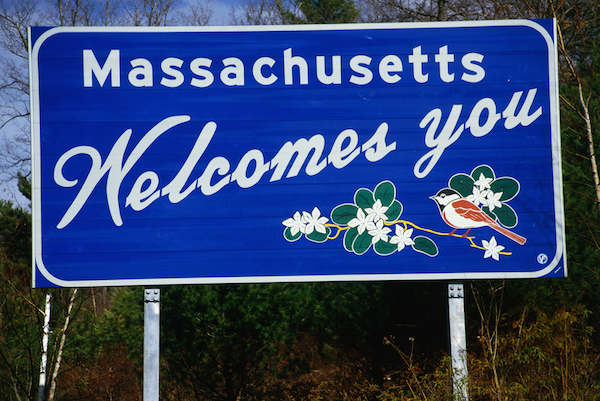The recreational weed market in Massachusetts is due to start on July 1, but most municipalities in the state have already enacted local bans on marijuana dispensaries.
Though recreational marijuana is now legal in Massachusetts and the state is figuring out how to regulate and tax the plant, an expected arrival of pot shops will not be taking place in many towns across the state.
According to data collected by Massachusetts Attorney General Maura Healey, as well as other news sources and municipal records, approximately 189 of the state’s 351 municipalities have vetoed retail cannabis stores and cultivation sites, as well as many other operations having to do with marijuana.
Of that 189, 59 of the local bans are indefinite. The rest are temporary moratoriums established to give local municipalities more time to figure out best practices for their communities. Some of these bans expire July 1. Others expire at the end of the year.
In many communities, there is concern that cannabis stores could augment the opioid problems many towns and cities across Massachusetts are facing. In addition to that, some local municipalities worry that local cannabis retail shops will mean an increase in youth drug use and “inhibited driving.”
In a letter written by Healey to the Massachusetts Cannabis Advisory Board, she raised concerns about many issues having to do with licensing retail cannabis shops and taxation. In the letter, she said there could be confusion about what constituted home delivery vs. brick-and-mortar stores, restrictions on amounts of marijuana sold, and the potential dangers of mixed-use social consumption establishments.

Mass. Attorney General Maura Healey
As she wrote, “It is more difficult to ensure that employees are abiding by the rules and properly verifying the age of the consumer when transactions are scattered on doorsteps across the state, rather than at an identifiable retail establishment with security cameras and other checks in place.”
In her letter, she warns of the potential safety risk in the delivery business, noting that couriers will be carrying large amounts of cash on them, thereby becoming possible targets for theft and crime, though not mentioning the alternative use of Venmo or PayPal.
Many marijuana advocates feel that delaying the proposed new rules and guidelines could shut out entrepreneurs who could open more modest retail shops quickly before larger businesses lay claim to the Massachusetts cannabis industry.
It is their opinion that the Massachusetts state government wants to hold off on full regulation until more vertical growth can be established, thereby capitalizing on a windfall of economic growth.
At this point, local control will dictate how fast or slow the market grows. As July 1 draws near, many of those moratoriums will expire, forcing a new round of town meetings, discussion, and thoughtful consideration about the future of a cannabis-inclusive state.













